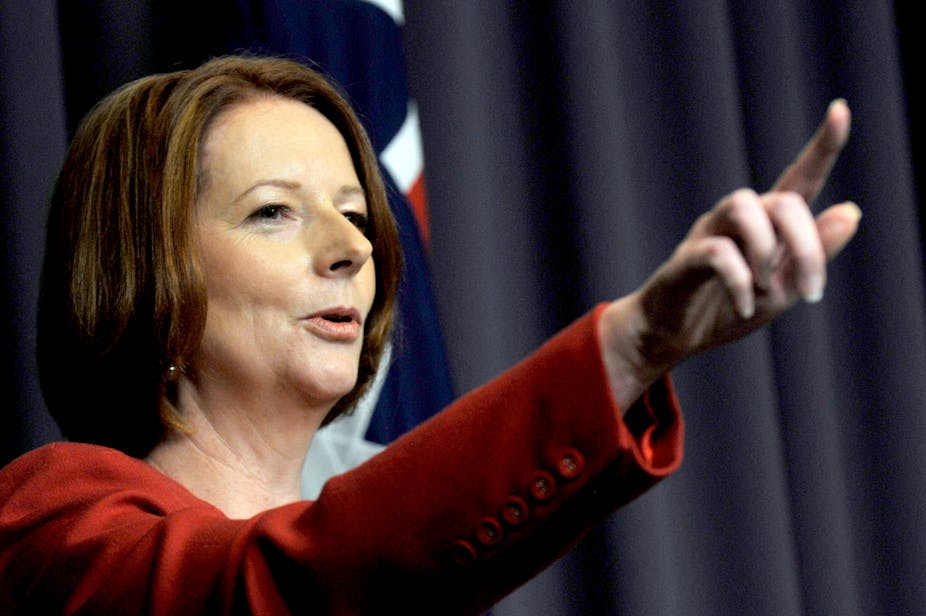“The right thing to do with an economy that is moving towards full capacity and full strength is to deliver a budget surplus.” - Prime Minister Julia Gillard
In collaboration with The Drum, The Conversation is taking a good hard look at one of the apparent sacred cows of our current economic times: the budget surplus.
Is our Prime Minister correct? Do we really have to have a surplus? Why? Or is this just one of those things politicians say because they sound vaguely responsible?
Here’s what four leading academics made of the PM’s surplus claim:
Associate Professor Colin Rogers, School of Economics, University of Adelaide:
“The structural budget balance is an estimate of the budget balance excluding the cyclical factors. While media attention is paid to the cyclical budget, it is the structural budget balance that signal changes in fiscal policy. Few in the financial and political media fully understand this concept, and few academic economists are able to explain it coherently to a general audience. All federal budgets have a built-in structure that increases the tax revenue intake during booms while simultaneously reducing government expenditure and transfers – and vice versa during a recession.” Read full article
Professor John Wanna, director of research in public administration, Australian National University
“The surplus has become a sort of leitmotif of good government but it doesn’t need to be. We saw in 2008-09 governments were quite happy to run a deficit, and in those years they didn’t face a barrage of criticism because of the worries of business and the community generally around the global financial crisis.” Read full article.
Tim Battin, Senior Lecturer, Faculty of Arts and Sciences, School of Humanities, University of New England
“For the past three decades, a period termed the neoliberal era, Australia has suffered increasingly from what some economists and various commentators have called "deficit fetishism”, a disease manifesting itself in a stated belief that a deficit is (almost) always to be avoided, while a surplus is (almost) always to be preferred. Despite the valiant efforts of some authoritative people to kill off this idea, it lives on. While there is room for legitimate disagreement among economic and social policy commentators about the degree and nature of budgetary shifts needed at any one time to take account of changing circumstances, deficit fetishism is simply mindless.“ Read full article.
Rhonda Sharp, Adjunct Professor, Education, Arts and Social Sciences, University of South Australia
There will be serious implications for different groups of people in society if we pursue this road towards surplus. Part of this depends on whether we are going to promote the surplus budget through spending cuts or tax increases because you get two very different impacts depending on which route you go down. There are consequences around what type of spending cuts the government makes… In the case of the deficit reduction, which is the focus of this budget, we are in danger of reversing trends towards gender equality.” Read full article.

